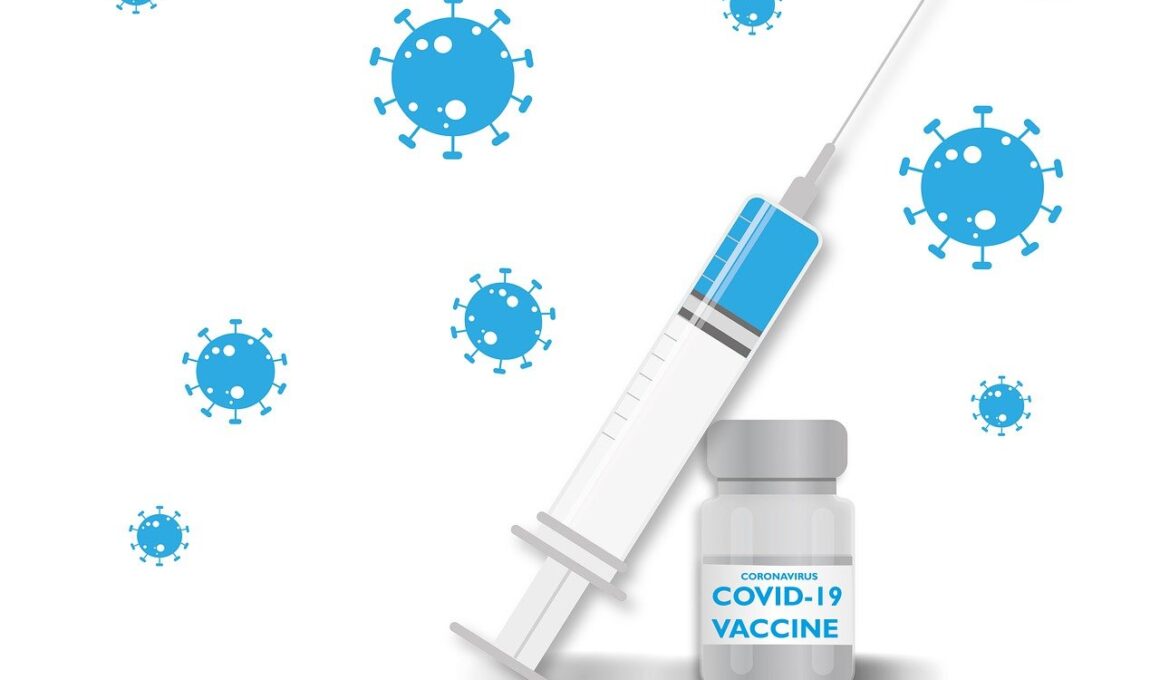Non-Core Vaccines for Dogs: Risks, Benefits, and Considerations
Understanding non-core vaccines is essential for dog owners as they provide protection against diseases that are not commonly seen but can still pose serious health risks. Non-core vaccines are tailored to specific needs based on a dog’s lifestyle, age, and geographic location. Common non-core vaccines include those for Bordetella, Canine Influenza, Lyme disease, and Leptospirosis. Each of these vaccines serves a unique purpose and should be considered in consultation with a veterinarian. For instance, the Bordetella vaccine is vital for dogs that frequently interact with other pets in social settings like boarding kennels or dog parks. The Canine Influenza vaccine, meanwhile, protects against a highly contagious virus spreading in places with high dog populations. Although non-core vaccines are not mandatory, they can enhance your dog’s immunity. It’s crucial to understand your environment and lifestyle when determining the need for non-core vaccination, as certain areas have higher prevalence rates for specific diseases. Always remain proactive and informed to ensure your dog remains healthy and protected against avoidable illnesses.
The Importance of Non-Core Vaccinations
Non-core vaccinations play a crucial role in ensuring a dog’s overall health, especially when specific risks are present. Depending on a dog’s exposure to various environments, non-core vaccines can be beneficial. For instance, if your dog is often in contact with other dogs, the Bordetella vaccine can prevent kennel cough, which is highly contagious. For dogs that spend lots of time outdoors, the Lyme disease vaccine can be vital in regions with high tick populations. Vaccination against Leptospirosis safeguards dogs from bacteria carried in contaminated water and can be a significant risk for those living near wetlands. Every dog owner should have an open discussion with their veterinarian about factors affecting their dog’s lifestyle. A veterinarian should assess a dog’s risks, including travel plans or activities that expose them to potentially infected environments. Non-core vaccinations might appear less critical than core ones, yet they ensure a protective layer against illnesses that can lead to severe health issues or require extensive medical intervention. By evaluating individual situations, you can help your dog live a long and fulfilling life, free from preventable diseases.
The decision to vaccinate with non-core vaccines is often influenced by regional disease prevalence and specific canine behavior. For example, if you live in an area prone to canine influenza outbreaks or have a dog that regularly plays at local parks, vaccinations are advisable. On the other hand, dogs that remain primarily indoors and seldom interact with other animals may not need certain non-core vaccinations. The veterinary community encourages consultation, where owners can discuss concerns and possible exposure to specific pathogens. Identifying risk factors isn’t just a matter of geography; it also involves understanding the social habits of your dog and their habits. By attending dog shows or parks, a canine may be exposed to unfamiliar pathogens. Additionally, the age and health of a dog can impact the decision for non-core vaccinations, as puppies and older dogs may have different immune system capabilities. Ultimately, it is paramount to tailor a vaccination plan that meets the specific needs of each individual dog, ensuring that they receive the right vaccines at the appropriate times.
Potential Risks and Side Effects
Like every medical procedure, non-core vaccinations carry potential risks and side effects, although serious adverse reactions are extremely rare. Common mild side effects can include lethargy, mild fever, and soreness at the injection site. These symptoms usually resolve on their own within a few days. However, in rare cases, dogs may experience more severe reactions such as anaphylaxis, which requires immediate veterinary care. It’s essential for pet owners to observe their dogs closely after vaccination to monitor any unexpected reactions. Understanding these potential side effects helps owners make informed decisions about their dog’s health. Consulting a veterinarian ahead of the vaccinations allows owners to ask questions related to their specific dog’s health and address any concerns. Some may worry unnecessarily about side effects, and a thorough discussion can alleviate these concerns. Ultimately, the benefits of protecting your dog against serious diseases often outweigh the potential risks involved. Keeping vaccination records updated is also critical in recognizing what vaccines have been administered and when the next set is due, helping avoid any unforeseen health issues.
Regular vet check-ups should accompany your dog’s vaccination schedule to maintain overall health and ensure any underlying issues are addressed promptly. Understanding that vaccination is a part of a broader health strategy will help you manage your dog’s health risk. Each dog’s needs are unique, with some requiring more frequent vaccinations based on lifestyle and exposure levels. For owners, being proactive about their dog’s health means scheduling those annual check-ups and having a frank discussion about the vaccines. Antibiotic resistance, zoonotic diseases, and evolving pathogen strains can all influence the necessity of certain non-core vaccines. Canine vaccines continually adapt based on further research and new data regarding disease prevalence and risks. Being aware of these changing dynamics allows for an informed decision-making process. Trusted veterinarians stay updated on the latest findings to provide effective advice. It’s through this ongoing education that pet owners can keep their dogs thriving, attending dog parks and social gatherings, without the considerable risk of illness. Implementing a vaccination schedule is essential for ensuring that dogs live healthy, fulfilling lives.
Cost Considerations for Non-Core Vaccines
While weighing the necessity of non-core vaccinations, cost considerations might arise for many pet owners. Non-core vaccines often don’t come with the same price tag as core vaccines, but they still require financial planning within the overall budget for a pet’s healthcare. It’s crucial to understand what each vaccine entails in terms of costs and longevity, as some might need more frequent boosters than others. For example, vaccines like Leptospirosis generally have a shorter duration of immunity and may lead to recommendations for annual boosters. Different clinics may offer varying prices based on geographical location and regional demand factors. Some pet insurance plans may cover parts of the cost, allowing for a more affordable approach to keeping your dog protected. It’s vital to scrutinize the details of each insurance plan to ensure comprehensive coverage. Forward-thinking pet owners budget for ongoing health costs, including routine vaccinations, to relieve financial pressure down the line. Taking proactive measures now can lead to healthier outcomes for dogs and financial peace of mind for their owners.
In conclusion, non-core vaccines are an essential aspect of responsible dog ownership. They significantly contribute to disease prevention and ensure your dog remains protected in a variety of situations they might encounter. While not all dogs need these vaccines, evaluating individual risks and discussing them with a knowledgeable veterinarian is critical. Keeping track of vaccination history, ever-changing disease risks, and individual dog needs ensures good health. Weighing the benefits against potential risks helps owners make informed health decisions. Additionally, considering costs and budgeting for vaccinations and vet visits will empower pet owners to address their dog’s healthcare effectively. By incorporating non-core vaccinations thoughtfully, you will not only enhance your dog’s well-being but also improve their quality of life. Dogs are part of the family, and making sure they have proper protection reflects the love and responsibility of dog ownership. A proactive approach to vaccinations allows for a longer, healthier life for your furry friend, filled with enjoyable moments and adventures. Remember, each preventive strategy you adopt enriches your dog’s life while keeping them safe from preventable illnesses. Make informed decisions to support your dog’s health.
In conclusion, non-core vaccines are an essential aspect of responsible dog ownership. They significantly contribute to disease prevention and ensure your dog remains protected in a variety of situations they might encounter. While not all dogs need these vaccines, evaluating individual risks and discussing them with a knowledgeable veterinarian is critical. Keeping track of vaccination history, ever-changing disease risks, and individual dog needs ensures good health. Weighing the benefits against potential risks helps owners make informed health decisions. Additionally, considering costs and budgeting for vaccinations and vet visits will empower pet owners to address their dog’s healthcare effectively. By incorporating non-core vaccinations thoughtfully, you will not only enhance your dog’s well-being but also improve their quality of life. Dogs are part of the family, and making sure they have proper protection reflects the love and responsibility of dog ownership. A proactive approach to vaccinations allows for a longer, healthier life for your furry friend, filled with enjoyable moments and adventures. Remember, each preventive strategy you adopt enriches your dog’s life while keeping them safe from preventable illnesses. Make informed decisions to support your dog’s health.





